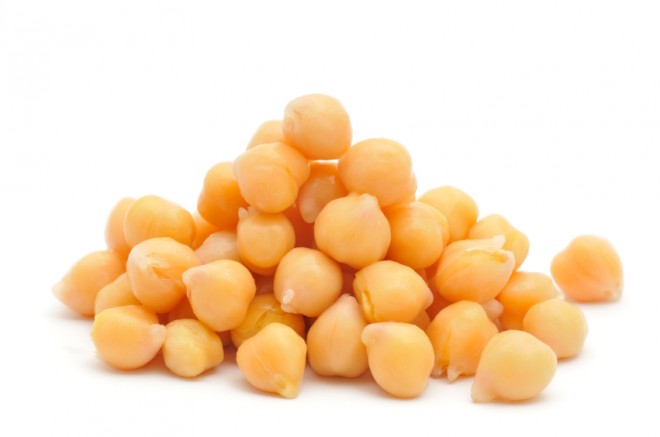We love chickpeas at the house. I’ve known them as
garbanzos my whole life, and as cecis my life in Brooklyn. And while I have
cooked with the dried stuff (and have some in my pantry right now), and chickpea
flour makes for a different kind of baking, I want to give you many reasons to
have at least a couple of cans in the cupboard.
Garbanzos are legumes, and as such are generally low in
fat, contain no cholesterol, and are high in a few minerals. To me they taste
somewhere between white beans and favas but with a more elegant consistency and
texture.
The true beauty of chickpeas is that you can use them in
a variety of cuisines: Spanish, Indian, Italian, Middle Eastern, African,
Asian, and Mediterranean. Roasted they make great snacks. They are delightful
in stews. Hummus is nothing without chickpeas. It is good in rice, with pasta,
in a couscous salad. You can make soups with them and they hold up really well.
Also: desserts!
We tend to buy Goya (it’s a family thing), but there are
other chickpeas in the market. Fine
Cooking picks Goya as their top choice but they tested others as well.
I’m always singing praises for chicken
tarragon with chickpeas, one of the easiest recipes that fill the house
with a divine aroma, and yields enough liquid for soup or stock, and materials
for sandwiches (be it chicken and/or mashed cecis).
I make a gumbo with rice, garbanzos and shrimp that is
spectacular (the chicken version is awesome too). One of my all-time favorites
is a Basque-inspired cod stew with tomatoes (sometimes potatoes), capers and
garbanzos.
One of my favorite guilty pleasures is rice with garbanzos (a pilaf/pulao).
It’s creamy and filling, and great as leftovers. Add peas and chicken and call
it a poor man’s paella. For a relatively easy paella, try this gem from
Penelope Casas: crusted paella
with pork, chicken and sausage.
In winter, a bowl of chorizo and chickpea soup
with some crusty bread is pure heaven – in spring, I do a less soupy chickpea
and sausage stew that also doubles as a pasta sauce with oil, lemon and a
handful of fresh dill.
For those with food allergies, using garbanzos as a
flour base makes a recipe gluten-free without missing much. You can make pizza,
peanut
butter chocolate chip bites, and even pancakes.
For those of you with kids, there are great lunchbox
ideas starring chickpeas, from crunchy
cinnamon-sugar roasted chickpeas to garlic
Parmesan roasted chickpeas. (Here’s a spicy
oven-roasted chickpea recipe for the adults brown-bagging their lunch.) Chickpea
protein bars are also great snacks.
Garbanzos also make great baby
food when mashed with sweet potatoes and a dash of milk, or a blueberry and
rosemary mash.
For the vegetarians and vegans, chickpeas provide great
alternatives such as garbanzo-based veggie
burgers, and falafels.
And what could be better than getting comfortable for an
evening of binge watching your favorite new show with a bowl of chocolate chickpea
truffles?
The versatility of the chickpea, as mentioned earlier,
includes various cuisines that will expand your palate. In no particular order:
Italy
Fried
Chickpea Polenta (panelle)
Greece
Chickpea
Soup with lemon and Olive Oil (revithia)
Portugal
Chickpea
Stew (grão de bico)
Moroco
Spain
Turkey
India
Egypt
Rice,
Garbanzos, and Macaroni (Koshari)
Ethiopia
Chickpea Stew
(wat)
Trinidad & Tobago
Philippines
Sri Lanka
Chickpea
Stir Fry (kadala thel dala)
There
is a Pinterest board with a few collections and a few individual recipes for
your enjoyment. You’ll find dozens of recipes there, but I like to think that
like Arabian Nights, there must be 1,001 ways to enjoy the little beans. You should
try them all!



No comments:
Post a Comment